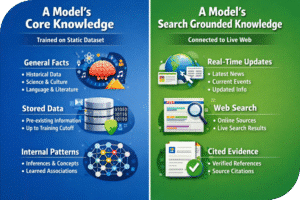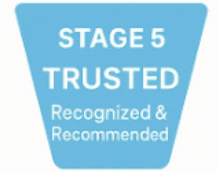Meta tags are snippets of text that describe a webpage’s content. They don’t appear visibly on the actual page for visitors. Instead, they exist in the source code, providing crucial information to search engines about what that page is all about.

While meta tags are not a huge direct ranking factor for search engine optimization (SEO) anymore, they still play an important supporting role. The right implementation and optimization of certain key meta tags can positively influence how your pages are crawled, indexed, and displayed in search results.
Including the most relevant and compelling meta tag information signals to search engines that your content is high-quality and deserving of higher rankings. Neglecting meta tags, on the other hand, may cause your pages to get misunderstood and underperform in search visibility.
So what are the most critical meta tags to focus on for boosting your website’s SEO? Let’s dive into the essential meta tag elements that every webmaster needs to know.
Title Tag The page title is one of the most valuable and influential meta tags for SEO. This tag defines the title of the webpage as it appears at the top of a browser window and in search results.
Not only do page titles create that critical first impression in SERPs (search engine results pages), but they are also a major factor search engines use to determine a page’s relevance to any given query.
To optimize your page titles for SEO:
- Include your primary targeted keyword towards the beginning of the title
- Keep titles concise yet descriptive, around 50-60 characters
- Use unique title tags for each page (avoid duplication)
- Add branding (e.g. “| Company Name”) toward the end of titles
Meta Description Tag The meta description summarizes the contents of a webpage, sometimes appearing in search snippets below the page title. While not a direct ranking factor, it can impact click-through rates from SERPs.
A compelling, keyword-rich meta description acts like a short ad, enticing searchers to click on your listing over others. From an SEO perspective, higher CTRs indicate to search engines that your content is high quality and relevant, indirectly boosting rankings over time.
Best practices for meta descriptions:
- Keep descriptions under 160 characters
- Include your main keyword and reasons for users to click
- Make descriptions relevant, compelling, and actionable
- Avoid duplication and keyword stuffing
Robots Meta Tag The robots meta tag tells search engine crawlers how to index and render the page. This tag has a few useful directives:
index/noindex: Allows or blocks search engines from including the page in their indexes. follow/nofollow: Instructs whether links on the page should be crawled/followed by web crawlers. nosnippet: Prevents showing a text snippet or description in SERPs.
If you have pages you don’t want shown in SERPs like thank-you pages or login portals, use the “noindex, nofollow” directive. But for the main content you’d like Google to rank, ensure “index, follow” is enabled.
Canonical Tag Duplicate content can harm a website’s SEO efforts as search engines may have trouble determining which version to prioritize and show in SERPs.
The canonical meta tag lets you clearly identify the “master” URL version you want crawlers and users to view as authoritative. Specifying rel=”canonical” tags prevents multiple URLs from competing with each other in rankings.
Open Graph Tags These metadata tags control how webpage previews appear when shared on social media sites like Facebook, LinkedIn, and Twitter. Their purpose is to enhance social sharing experiences with richer, more robust link previews featuring images, titles, descriptions and more.
While open graph tags don’t directly impact SEO, having appealing and relevant social previews can boost a post’s engagement, leading to more traffic and higher authority signals over time.
Key open graph tags include:
og:title og:description og:image og:url
Twitter provides its own variants for card previews like:
twitter:title twitter:description twitter:image twitter:card
Schema Structured Data Schema markup offers another layer of metadata for defining and structuring your webpage’s core entities, events, products, and content objects.
The beauty of schema is that it helps search engines better understand and highlight your page’s contents on SERPs. This can mean anything from getting an enhanced result listing with images, videos, ratings and reviews, to having key data points and actions (“breadcrumbs,” FAQs, booking tools, etc.) featured prominently.
While not exactly meta tags in the traditional sense, strategically using the right schema structured data can make your pages stand out from competitors’ in search results, improving your SEO performance.
Alt Text & Other Accessibility Tags On top of the page-level meta tags, it’s also important to include descriptive alt text for any images, videos, audio files and other non-text elements embedded on a website.
Well-written alt text and other accessibility metadata benefits not only users with visual or audio impairments but also search engine crawlers who cannot interpret multimedia objects directly.
Clearly describing your media content through alt tags therefore provides an SEO boost by helping search engines understand and index those elements. It also contributes positively to your site’s overall accessibility standards.
Meta Tags Lay the Foundations for SEO While flashy technical changes and backlink building often steal the spotlight, there’s no denying the importance of fundamental SEO housekeeping items like properly implemented meta tags.
These snippets of descriptive code provide key contextual clues to search engine crawlers about your webpage’s content, relevance, quality, intent, and relationship to other resources on the web. As such, they directly influence the core components of SEO success — crawling, indexing, rankings, traffic acquisition, and user experience delivery.
Far from being a minor SEO task, meta tags represent foundational optimizations that set the stage for your broader search visibility. Don’t neglect these low-hanging and often overlooked opportunities to shape search engines’ understanding and delivery of your website.
About The Author
Rehj
With over 15 years of experience in copywriting, Rehj has established a reputation as a highly skilled and talented wordsmith. Rehj has honed their craft throughout her career, consistently producing top-quality content for various audiences and industries.
Her ability to understand their target audience, craft compelling narratives, and write in a style that resonates with their audience has made them a sought-after copywriter in their field. Rehj’s passion for writing and commitment to producing top-notch content has driven their success and established them as a trusted voice in copywriting.



